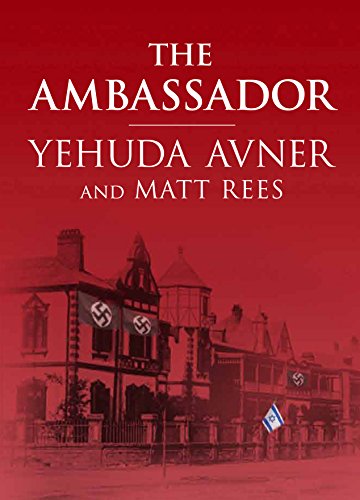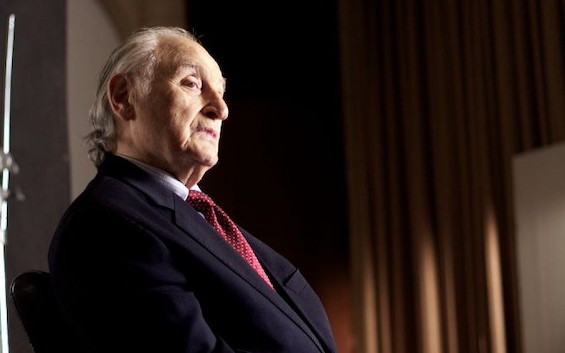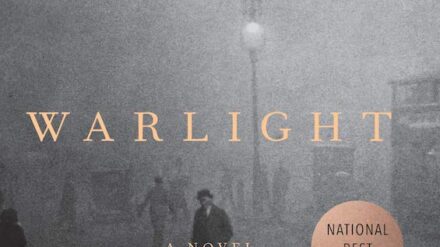
Alternate history abounds with stories that picture Nazi Germany winning World War II. Fatherland by Robert Harris. SS-GB by Len Deighton. Philip K. Dick’s The Man in the High Castle. And a great many more. So, it’s refreshing to come across an original what-if scenario on the war such as Yehuda Avner’s alternate history of Israel, The Ambassador. The novel portrays Israel’s founding ten years early. And the Nazis lose the war even earlier than they really did. Although the story stretches credulity, it makes for a great reading experience.
Estimated reading time: 6 minutes
A Jewish homeland a decade early in this alternate history of Israel
In The Ambassador, Britain abandons its League of Nations mandate in Palestine in 1938 rather than ten years later. The British government had formed a royal commission to investigate the causes of unrest among Palestinian Arabs and Jews in 1936. And the Peel Commission issued its report the following year, incorporating the Balfour Declaration of 1917, which provided for the establishment of a Jewish national home in Palestine. In reality, the government concluded on receiving the report that removing British troops would ignite full-scale civil war between Arabs and Jews. But in the novel, Neville Chamberlain’s government chooses partition as a solution. Which of course inevitably leads to the war everyone knew was coming, anyway.
The Ambassador by Yehuda Avner and Matt Rees (2015) 339 pages ★★★★☆

Getting out while the getting’s still good
The novel’s protagonist and ambassador of the title is Dan Lavi. In 1938, shortly after the founding of the State of Israel, Israeli president David Ben-Gurion (1886-1973) appoints him envoy to Nazi Germany. His mission is to facilitate the exit of hundreds of thousands of German Jews and their passage to the new country. (There were barely more than half a million Jews living in Germany then, about one percent of the population.) And in his capacity as ambassador, Levi is forced to work closely with Adolf Eichmann (1906-62), head of the SS Central Office for Jewish Emigration. Together, they arrange for the departure of more than one hundred thousand over the course of the more than three years that elapse before the Wannsee conference in January 1942. But then Hitler sets the “Final Solution” in motion, ending Jewish emigration.
Both fictional and historical figures Join Lavi, Ben-Gurion, and Eichmann as principal characters. Anna Lavi, Dan’s wife. Wilhelm (“Willi”) Gottfried, a virtuoso violinist with a Stradivarius. Countess Hannah von Bredow (1893-1971), the anti-Nazi granddaughter of Chancellor Otto von Bismarck. Shmulik Shoham, the Mossad station chief in Berlin. And several highly placed Nazis, including Reinhard Heydrich (1904-42), head of Nazi security services, and Friedrich Kritzinger (1890-1947), deputy chief of the Reich Chancellery.
A chilling closing note
In an historical note at the conclusion of the novel, the authors lament what might-have-been. “When Heydrich convened the Wannsee conference,” they write, “eighty percent of the Jews who would eventually be murdered in the Holocaust were still alive; only sixteen months later, eighty percent of them were already dead.” Hitler’s order, never documented but widely confirmed, set off a frenzy of mass murder during that fateful time as the tide in the war turned in favor of the Allies.
About the authors

Yehuda Avner
In his obituary in the Guardian, we learn that Yehuda Avner (1928-2015) “was born Gubby Haffner into an intensely religious Manchester [England] family: his father had set up a synagogue in the city. Educated at Manchester high school, he never lost his Mancunian accent. Before emigrating to Israel in 1949, he worked for the Zionist movement, as general secretary of Bnei Akiva (the children of Akiva), a religious youth organisation, and of Bachad, a related group for training youngsters in agricultural activities before emigration. In 1953 he returned briefly to Britain and married Miriam (nee Cailingold), known as Mimi. The couple left for Israel the following year and had a son and three daughters.”
After a decade working as a journalist, first in England and later in Palestine, “in 1964, he became assistant to the then prime minister, Levi Eshkol, the man at the helm during the 1967 six-day war. Avner was the country’s consul in New York (1967-68) and from there went to Washington as first secretary in the embassy. When he returned home in 1972, it was to become both assistant to prime minister Golda Meir, and director of the government’s foreign press bureau. Yitzhak Rabin kept him on in the prime minister’s office, as did Menachem Begin when he took over in 1977.” In other words, Avner was one of the newly independent state’s most eminent public servants.

Matt Rees
Matt Rees‘s bio on his author website notes in staccato fashion that he was “born in Newport, South Wales. Grew up in Cardiff and South London. Major authors compare his writing to the work of Graham Greene, John Le Carre, Georges Simenon, and Henning Mankell. L’Express called him ‘the Dashiell Hammett of Palestine.’ Award-winning Middle East correspondent for The Scotsman and Newsweek, and during the Palestinian intifada was Time’s Jerusalem bureau chief. Yasser Arafat once tried to have him arrested.”
Rees is the author of the Palestine Quartet (the Omar Yussef novels) as well as three historical novels, two thrillers, and a book of nonfiction.
For related reading
This is another of the Great alternate history novels. You might also care to check out the Top 10 historical mysteries and thrillers.
I’ve reviewed two of the novels in Matt Rees’ Palestine Quartet:
- The Collaborator of Bethlehem – Omar Yussef #1 (A murder in Palestine exposes the fault lines in the refugee community)
- A Grave in Gaza – Omar Yussef #2 (Murder in the shadow of the Palestinian Intifada)
For more good reading, check out:
- These novels won both Hugo and Nebula Awards
- The ultimate guide to the all-time best science fiction novels
- 10 top science fiction novels
- The top 10 dystopian novels
- 10 new science fiction authors worth reading now
And you can always find my most popular reviews, and the most recent ones, on the Home Page.

























